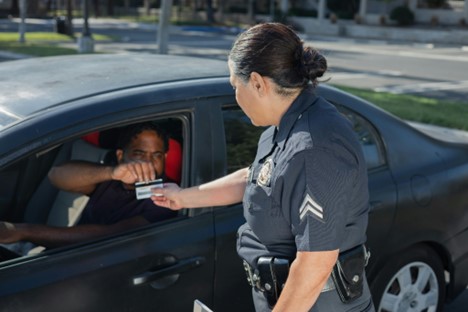In an era of rapid digital transformation, the way we manage essential documents is undergoing a significant paradigm shift. Driver’s licenses are no exception, as they’re a crucial form of identification. For Lakeland residents, the prospect of digitizing driver’s licenses through optical character recognition (OCR) technology promises to reshape how we interact with this fundamental piece of personal documentation.
The Power of OCR Technology
OCR technology is a breakthrough in document digitization. At its core, OCR is a sophisticated process that converts different types of documents into machine-readable text formats, and extracts and processes information from physical documents with remarkable precision
This reduces manual data entry, minimizes human error, and enables quick and efficient document management across various platforms. By implementing OCR technology, Lakeland can transform how residents interact with this critical form of identification, offering unprecedented convenience and efficiency. Digital driver’s licenses (or an mDL) is a license that is on a mobile device and which can be updated in real time.
Navigating the Implementation of Driver Licence Scanning
Integrating OCR technology for driver’s license digitization involves a strategic approach. The implementation process includes several key steps:
- Technology assessment: Evaluating OCR solutions that meet specific municipal requirements
- Infrastructure preparation: Upgrading existing systems to support digital document processing
- Staff training: Ensuring municipal employees can effectively utilize the new technology
- Pilot testing: Conducting controlled trials to validate accuracy and reliability
- Gradual rollout: Implementing the system in phases to minimize disruption
While the journey presents challenges, Lakeland’s commitment to technological innovation positions it perfectly to overcome potential obstacles.
Addressing Critical Concerns for OCR Technology
Data accuracy and security stand at the forefront of OCR implementation. Modern OCR technologies boast impressive accuracy rates, often exceeding 99% in character recognition. To ensure comprehensive data protection, municipalities can implement:
- Advanced encryption protocols
- Multi-factor authentication systems
- Regular security audits
- Strict access control mechanisms
- Compliance with state and federal data protection regulations
Transformative Benefits for Lakeland Residents
The digitization of driver’s licenses with OCR technology offers residents numerous advantages. Instant access to license information and reduced waiting time during renewal processes can be achieved. Simplified document verification procedures and protection against physical document loss will be eliminated. OCR technology will also ensure seamless integration with digital government services.
The Road Ahead: Digital Civic Transformation
As Lakeland embraces OCR driver’s license management, it sets a benchmark for digital civic services. This initiative represents a commitment to making government services more accessible, efficient, and user-friendly.
The potential extends beyond driver’s licenses. Successfully implementing OCR could pave the way for broader digital transformation in municipal services, creating a more connected and streamlined experience for Lakeland residents.
Embracing the Digital Future of Documentation
The convergence of technology and civic services is no longer a distant vision but an unfolding reality. By leveraging OCR technology, Lakeland demonstrates its forward-thinking approach to municipal management, placing convenience, security, and innovation at the forefront of public services.
As we move forward, the digitization of driver’s licenses represents just the beginning of a comprehensive digital transformation journey; one that promises to make interactions with government services smoother, faster, and more intuitive than ever before.










